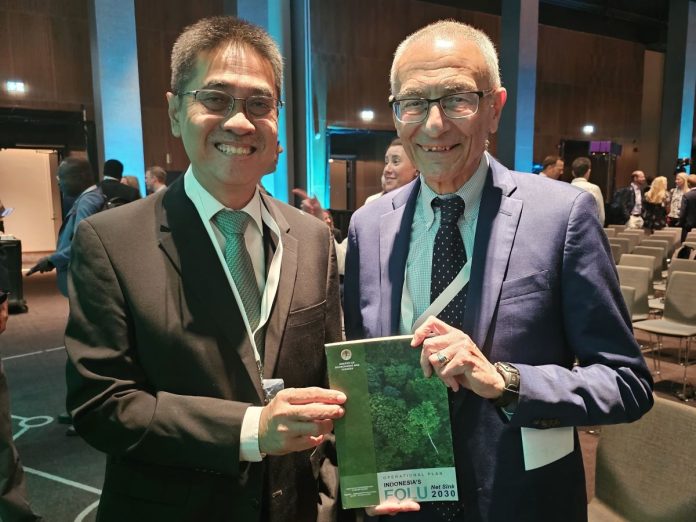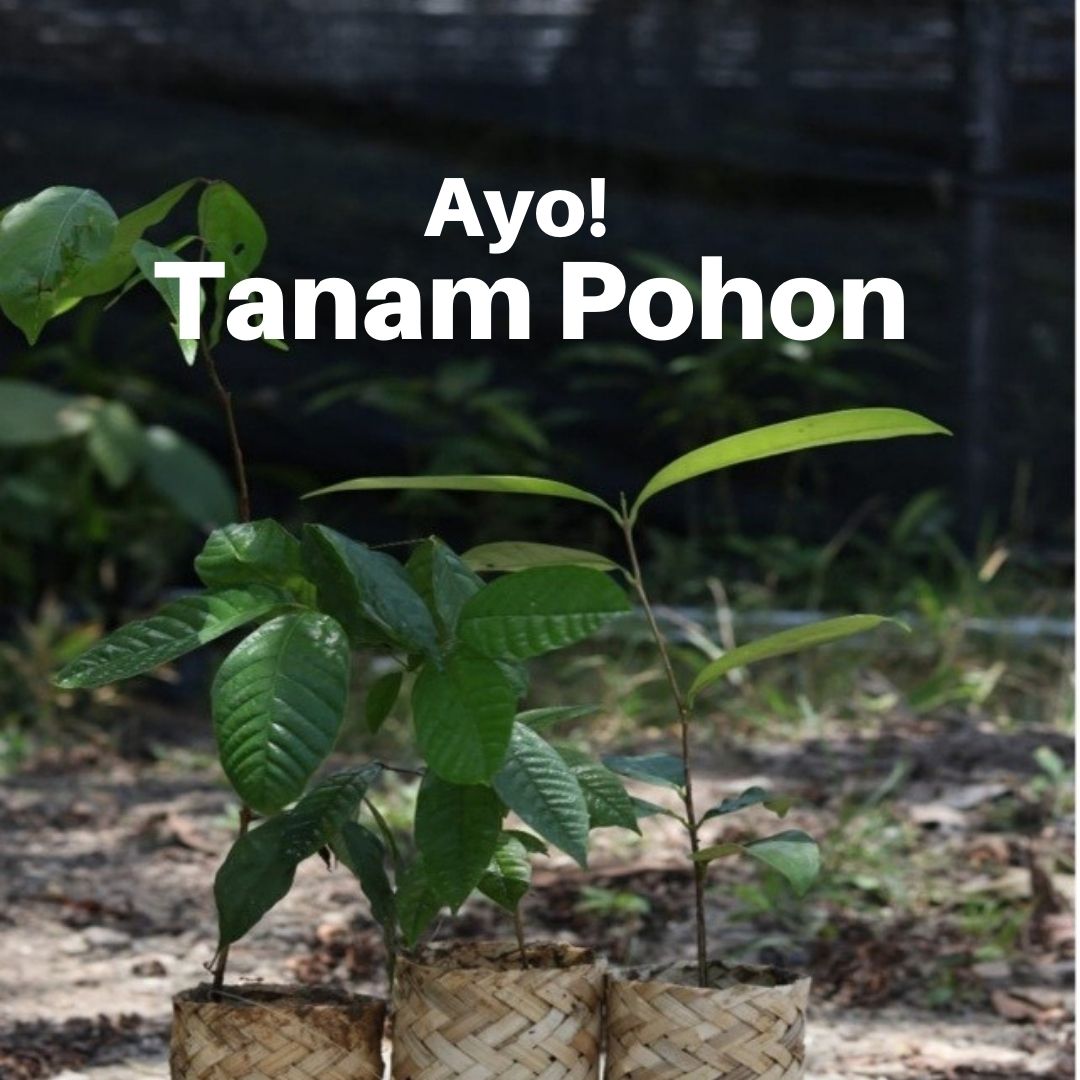Indonesia’s ambitious agenda to achieve FOLU Net Sink by 2030 is highly structured and systematic, with significant progress made in reducing carbon emissions in recent years.
Agus Justianto, Chair of the Indonesia’s FOLU Net Sink 2030 Task Force, emphasized that the FOLU Net Sink agenda is not just an empty promise.
“This agenda is legally binding as stipulated in the Operational Plan Document of Indonesia’s FOLU Net Sink 2030,” Agus explained during a meeting with Senior Advisor to the President of the United States John David Podesta on the sidelines of the Oslo Tropical Forest Forum (OTFF) in Oslo, Norway, Tuesday, June 25, 2024.
On this occasion, Agus handed over the Operational Plan Document of Indonesia’s FOLU Net Sink 2030 and provided an explanation of the implementation of the agenda.
Through the FOLU Net Sink agenda, Indonesia has designed its forestry and other land use (FOLU) sector to achieve a higher carbon sink rate than its emissions by 2030. This is expected to contribute around 60% of Indonesia’s total greenhouse gas (GHG) emission reduction target in 2030 as stated in the Nationally Determined Contribution (NDC) document.
The foundation of the FOLU Net Sink agenda is sustainable forest management, environmental governance, and carbon governance.
Agus outlined several strategies to achieve FOLU Net Sink. First, suppressing deforestation, including that caused by forest and land fires.
The second strategy is to reduce forest degradation. The third strategy is the protection and restoration of ecosystems, including peatlands, mangroves, and watersheds. The fourth strategy is to accelerate afforestation and reforestation to increase carbon stocks.
Agus emphasized that the FOLU Net Sink agenda also prioritizes the protection of key species such as Sumatran orangutans, elephants, tigers, rhinos, Tapanuli orangutans, Kalimantan orangutans, and Javan rhinos, to ensure their populations continue to thrive and avoid extinction as part of efforts to achieve the goals of the Global Biodiversity Framework.
The OTFF, organized by the Norwegian government, invited a number of ministerial-level leaders, public officials, multilateral institutions, indigenous peoples, and the private sector.
At the OTFF Plenary Session, Minister of Environment and Forestry Siti Nurbaya revealed Indonesia’s success in reducing carbon emissions by 47.3% in 2020, 43.8% in 2021, and 41.6% in 2022, compared to the annual emission baseline.
Minister Siti also revealed that a joint analysis by the World Resources Institute, the University of Maryland, and the Ministry of Environment and Forestry (KLHK), facilitated by Norway, showed that the deforestation rate between 2022 and 2023 was only 0.13 million hectares per year. This figure is the lowest in the last 33 years.
Indonesia’s success has also been appreciated by host Norway, as conveyed by Norwegian Minister of Climate and Environment Andreas Bjelland Eriksen.***




